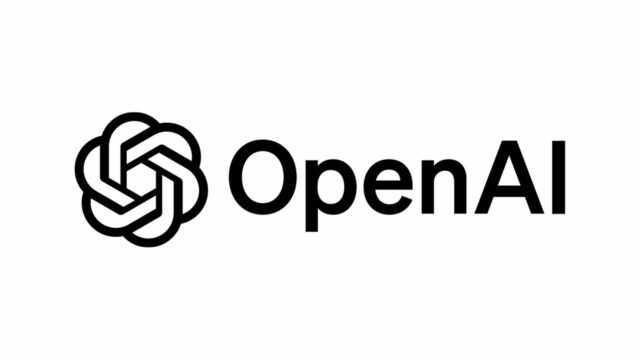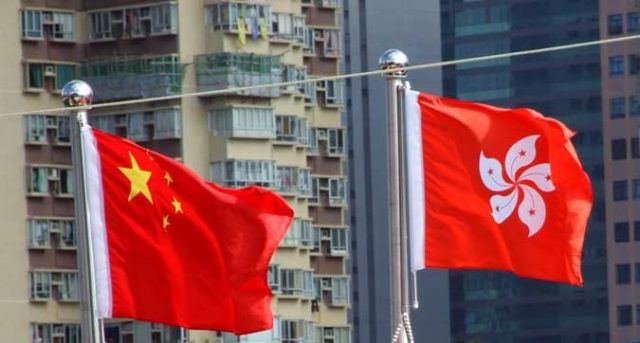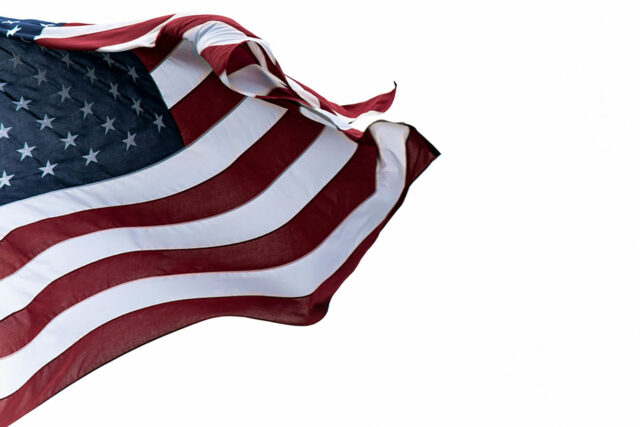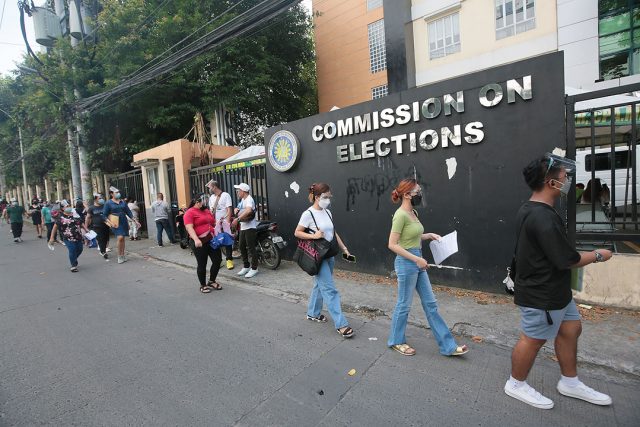In latest trade war salvo, Trump raises tariffs on aluminum, steel imports
WASHINGTON — US President Donald Trump substantially raised tariffs on steel and aluminum imports on Monday to a flat 25% “without exceptions or exemptions” in a move he hopes will aid the struggling industries in the United States but which also risks sparking a multi-front trade war.
Mr. Trump signed proclamations raising the US tariff rate on aluminum to 25% from his previous 10% rate and eliminating country exceptions and quota deals as well as hundreds of thousands of product-specific tariff exclusions for both metals. A White House official confirmed the measures would take effect on March 4.
The tariffs will apply to millions of tons of steel and aluminum imports from Canada, Brazil, Mexico, South Korea and other countries that had been entering the US duty free under the carve-outs.
The move will simplify tariffs on the metals “so that everyone can understand exactly what it means,” Mr. Trump told reporters. “It’s 25% without exceptions or exemptions. That’s all countries, no matter where it comes from, all countries.”
Mr. Trump later said he would give “great consideration” to Australia’s request for an exemption to the steel tariffs due to that country’s trade deficit with the US.
The proclamations were extensions of Mr. Trump’s 2018 Section 232 tariffs to protect domestic steel and aluminum makers on national security grounds. A White House official said the exemptions had eroded the effectiveness of these measures.
Mr. Trump also will impose a new North American standard requiring steel imports to be “melted and poured” and aluminum to be “smelted and cast” within the region to curb US imports of minimally processed Chinese and Russian metals that circumvent other tariffs.
The action also extends the tariffs to downstream products that use foreign-made steel, including fabricated structural steel, aluminum extrusions and steel strand for pre-stressed concrete, a White House official said.
“The steel and aluminum tariffs 2.0 will put an end to foreign dumping, boost domestic production and secure our steel and aluminum industries as the backbone and pillar industries of America’s economic and national security,” Mr. Trump’s trade adviser Peter Navarro told reporters.
As he signed the order at the White House, Mr. Trump said he would follow Monday’s action with announcements about reciprocal tariffs on all countries that impose duties on US goods over the next two days, and said he was also looking at tariffs on cars, semiconductors and pharmaceuticals.
Asked about threats of retaliation by other countries against his new tariffs, Mr. Trump said: “I don’t mind.”
US data showed aluminum smelters produced just 670,000 metric tons of the metal last year, down from 3.7 million in 2000. Plant closures in recent years including in Kentucky and Missouri have left the country largely reliant on imports.
Steel imports accounted for about 23% of American steel consumption in 2023, according to American Iron and Steel Institute data, with Canada, Brazil and Mexico the largest suppliers.
Canada, whose abundant hydropower resources aid its metal production, accounted for nearly 80% of US primary aluminum imports in 2024.
Canada’s industry minister said the US tariffs were “totally unjustified,” with Canadian steel and aluminum supporting key US industries including defense, shipbuilding, energy and autos.
“This is making North America more competitive and secure,” Francois-Philippe Champagne said in a statement. “We are consulting with our international partners as we examine the details. Our response will be clear and calibrated.”
While China exports only tiny volumes of steel to the US, it is responsible for much of the world’s excess steel capacity, according to the US. It says subsidized production in China forces other countries to export more and leads to transshipment of Chinese steel through other countries into the US to avoid tariffs and other trade restrictions.
Following losses in Asian and European steelmakers on Monday, shares of Chinese steelmakers dropped further on Tuesday, while shares in US steel and aluminum makers jumped ahead of the proclamations.
COLD WAR TRADE LAW
Mr. Trump first targeted steel and aluminum for tariffs in 2018 under a Cold War-era national security law. He later granted several countries exemptions, including Canada, Mexico and Australia, and struck duty-free quota deals for Brazil, South Korea and Argentina based on pre-tariff volumes.
Mr. Trump’s successor, former president Joseph Biden, later negotiated duty-free quotas for Britain, Japan and the EU.
“We applaud the president for instituting these 25% tariffs on steel imports and getting rid of exclusions, carveouts and quotas that are based on antiquated data,” said Philip Bell, president of the Steel Manufacturers Association.
These were based on 2015-2017 import levels that no longer reflect current market dynamics,Mr. Bell said.
The European Commission said it saw no justification for the tariffs and said President Ursula von der Leyen would meet US Vice President JD Vance in Paris on Tuesday during an AI summit.
In South Korea, the Industry Ministry called in steelmakers to discuss how to minimize the impact of tariffs.
RECIPROCAL TARIFFS
Mr. Trump has promised detailed information on Tuesday or Wednesday on his reciprocal tariff plan. He has long complained about the European Union’s (EU) 10% tariff on auto imports, much higher than the US car rate of 2.5%. However, the US applies a 25% tariff on pickup trucks, a vital source of profit for Detroit automakers like General Motors.
Overall, the US trade-weighted average tariff rate is about 2.2%, according to World Trade Organization data, compared to 12% for India, 6.7% for Brazil, 5.1% for Vietnam and 2.7% for the EU.
Indian Prime Minister Narendra Modi is preparing tariff cuts ahead of a Wednesday meeting with Mr. Trump that could boost American exports, Indian government officials said.
Mr. Trump has previously called India a “very big abuser” on trade, and his top economic adviser Kevin Hassett singled out the country as having “enormously high” tariffs in a CNBC interview.
Mr. Trump had already threatened to impose tariffs of 25% on all imports from America’s two largest trading partners, Canada and Mexico, saying they must do more to halt the flow of drugs and migrants across the US border. After some border security concessions, Mr. Trump paused the tariffs until March 1. — Reuters

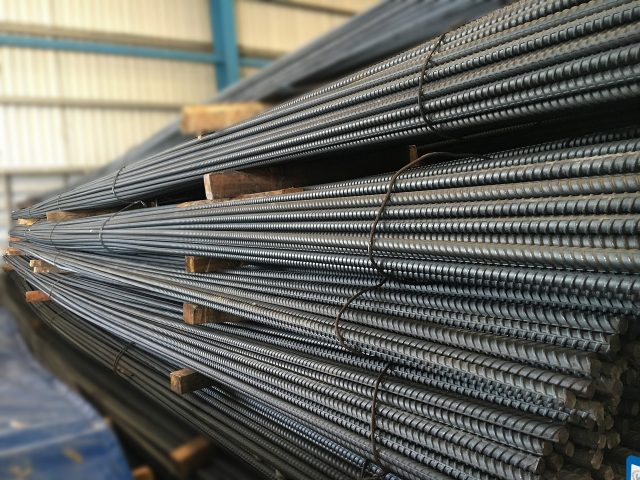
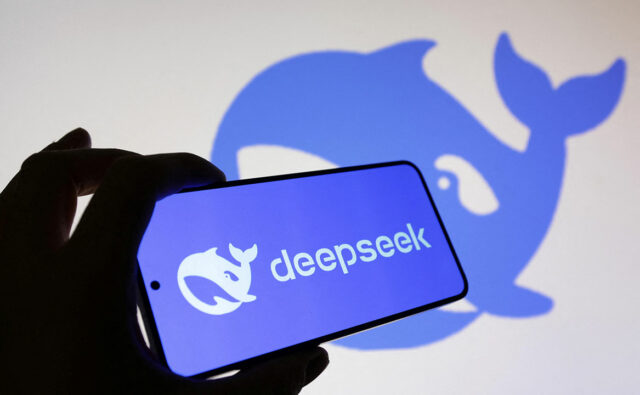

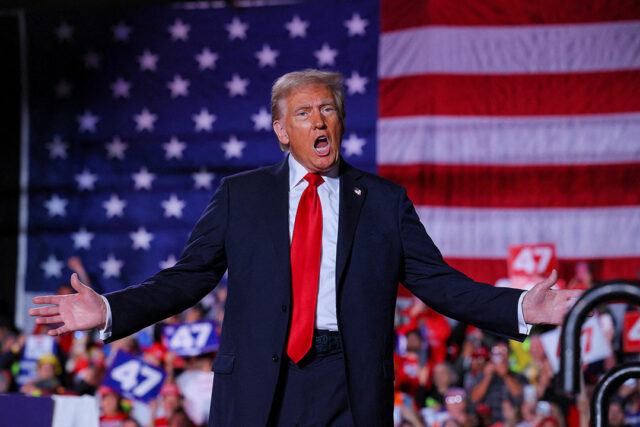
![[Feature-Article]-Driving-Global-Change_-2025-Conference-on-Tax-Policies-and-ESG-Investments-1-OL](https://www.bworldonline.com/wp-content/uploads/2025/02/Feature-Article-Driving-Global-Change_-2025-Conference-on-Tax-Policies-and-ESG-Investments-1-OL-640x829.jpg)

